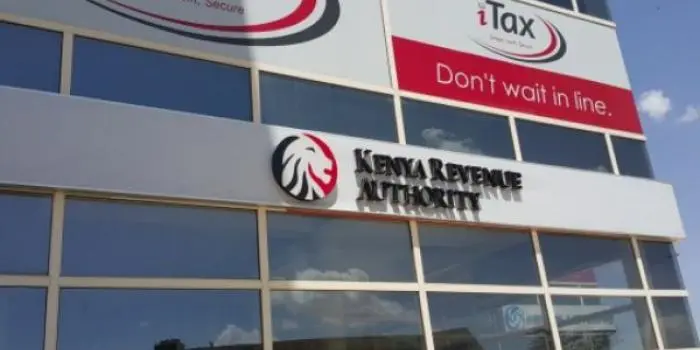
As digital transformation reshapes the financial landscape in Kenya, tensions are rising between the Kenya Revenue Authority (KRA) and the banking sector. KRA’s push to integrate its systems with banks to access real-time financial data has been met with firm resistance. While the tax authority views this as a critical step toward reducing tax evasion and enhancing revenue collection, banks argue that the move could jeopardize customer data privacy and expose sensitive information to cyber threats.
This debate highlights the delicate balance between ensuring compliance and protecting consumer rights, a matter of growing significance in Kenya’s finance industry.
The Purpose Behind KRA’s Integration Efforts
KRA’s push for real-time integration with banking systems is rooted in its goal of increasing tax transparency and addressing loopholes that allow tax evasion. By monitoring transactions such as consultancy payments, royalties, and commissions, KRA aims to:
- Boost Revenue Collection
With Kenya facing a growing budget deficit, the government is under pressure to expand its tax base. The integration would enable KRA to capture previously unreported income streams. - Enhance Tax Compliance
Access to real-time data would help KRA identify and audit individuals and businesses underreporting their income or avoiding taxes altogether. - Streamline Tax Administration
Integration promises to reduce the time and resources spent on tax audits, as KRA would have direct access to verifiable financial records.
Banks’ Standpoint: Privacy and Security Risks
While KRA’s objectives appear noble, banks have raised significant concerns about the implications of the proposed integration, including:
1. Breach of Customer Privacy
Banks are custodians of sensitive financial data, and their credibility hinges on maintaining customer confidentiality. By granting KRA direct access to transaction data, banks risk breaching data protection laws, such as the Data Protection Act, 2019, which safeguards individuals’ right to privacy.
2. Cybersecurity Concerns
Kenyan banks argue that integrating their systems with KRA could expose customer data to cyber threats. Financial institutions invest heavily in cybersecurity, but the possibility of third-party breaches remains a key concern.
3. Erosion of Customer Trust
Customers are likely to perceive system integration as intrusive. This perception could lead to mistrust in banking institutions, prompting some to shift to less-regulated alternatives such as informal financial systems or cryptocurrencies.
4. Legal Implications
Some banks have hinted at challenging KRA’s demands in court, citing legal ambiguities around the Finance Act, 2023, which underpins KRA’s integration mandate. They argue that the act does not provide sufficient clarity on the scope of data access or safeguards against misuse.
Balancing Compliance and Privacy
The tension between KRA and banks underscores the need for a balanced approach that ensures tax compliance without compromising customer rights. Key considerations include:
1. Enhanced Collaboration
Both parties could establish joint working groups to address operational and legal challenges. Collaboration can ensure that integration efforts are fair, secure, and legally sound.
2. Data Anonymization
Implementing data anonymization techniques can enable KRA to access necessary financial information without compromising individual privacy.
3. Strengthened Cybersecurity Frameworks
To address cybersecurity concerns, KRA must demonstrate its ability to handle sensitive financial data securely. This includes regular audits, compliance with global data protection standards, and transparent reporting of security incidents.
4. Clear Legal Frameworks
Amending the Finance Act, 2023, to provide explicit guidelines on data access and usage would help build trust between KRA, banks, and the public.
Lessons from Global Practices
Kenya can draw lessons from other countries that have implemented similar tax compliance measures. For instance:
1. India’s GST System
India’s Goods and Services Tax (GST) framework integrates banking and tax systems to curb tax evasion. However, stringent data protection laws and government oversight have mitigated privacy concerns.
2. The UK’s HMRC Initiatives
The UK’s tax authority, HMRC, uses data analytics tools to monitor financial transactions. This is done in partnership with banks under strict legal safeguards.
3. South Africa’s Tax Administration
The South African Revenue Service (SARS) collaborates with financial institutions, leveraging anonymized data to enhance tax compliance while ensuring privacy.
The Broader Implications for Kenya’s Finance Sector
1. Impact on Digital Transformation
The dispute could slow down Kenya’s digital transformation in the finance sector. Banks might hesitate to adopt new technologies if they fear regulatory overreach.
2. Changing Consumer Behavior
Increased scrutiny of bank transactions could drive more individuals and businesses toward alternative financial services, including mobile money platforms and decentralized finance (DeFi).
3. Reputation Risks
Both KRA and banks risk reputational damage. If KRA is perceived as overreaching, it could face public backlash. Conversely, if banks fail to comply, they could be viewed as enablers of tax evasion.
Read: Stolen KRA Revenue Stamps: Battle Against Counterfeit Goods
What’s Next? Exploring Possible Outcomes
1. Litigation
Some banks may pursue legal action against KRA to challenge the legality of the integration mandate.
2. Policy Amendments
The government could amend existing laws to clarify the scope and limitations of KRA’s data access.
3. Gradual Implementation
A phased approach to integration could help address concerns while demonstrating the benefits of real-time data sharing.
The ongoing standoff between KRA and Kenyan banks reflects a broader challenge of balancing regulatory compliance with consumer protection in the digital age. While KRA’s data integration initiative is a step toward addressing tax evasion, it must address banks’ legitimate concerns over data privacy, cybersecurity, and legal ambiguities.
For Kenya to achieve its revenue targets without compromising trust in its financial institutions, a collaborative approach is essential. This includes clear legal frameworks, robust data protection measures, and transparent communication to ensure all stakeholders are aligned.
FAQs
Why are Kenyan banks resisting KRA’s data integration initiative?
Kenyan banks are resisting KRA’s initiative due to concerns over customer data privacy, potential cybersecurity risks, and the erosion of customer trust. They argue that the integration may breach Kenya’s Data Protection Act, 2019, and expose sensitive financial data to misuse.
What is the Kenya Revenue Authority’s goal with system integration?
KRA aims to integrate its systems with financial institutions to monitor real-time transactions, identify tax evaders, enhance tax compliance, and boost revenue collection.
How does the Data Protection Act, 2019, affect KRA’s initiative?
The Data Protection Act safeguards individuals’ rights to privacy by regulating how personal data is collected, stored, and shared. Banks argue that giving KRA direct access to customer transaction data may violate this act.
What are the potential cybersecurity risks of integrating bank systems with KRA?
Integrating systems increases the risk of data breaches and cyberattacks. Sensitive customer information could be exposed if robust cybersecurity measures are not in place.
Are there global examples of tax authorities working with banks?
Yes, countries like India, the UK, and South Africa have implemented frameworks where tax authorities collaborate with banks. These systems often include strong data protection laws and anonymized data sharing to protect privacy.
What legal actions can banks take against KRA?
Banks can challenge the mandate in court by arguing that it violates constitutional privacy rights or lacks clear legal guidelines under the Finance Act, 2023.
How might this dispute affect customers?
If KRA gains access to real-time bank data, customers may feel their privacy is compromised. This could lead to a loss of trust in traditional banks and a shift toward alternative financial systems.
What is the role of the Finance Act, 2023, in this issue?
The Finance Act, 2023, provides the legal framework for KRA’s system integration initiative. However, banks argue that the act lacks sufficient clarity on data access, safeguards, and limitations.
What solutions could balance KRA’s goals and customer privacy concerns?
Potential solutions include data anonymization, strengthened cybersecurity frameworks, clear legal guidelines, and enhanced collaboration between KRA and banks to ensure fair and secure integration.
How could this impact Kenya’s financial sector in the long term?
The dispute could slow digital transformation, shift consumer behavior towards alternative financial platforms, and create reputational risks for both KRA and banks. Resolving the issue fairly could strengthen the sector and build trust among stakeholders.





